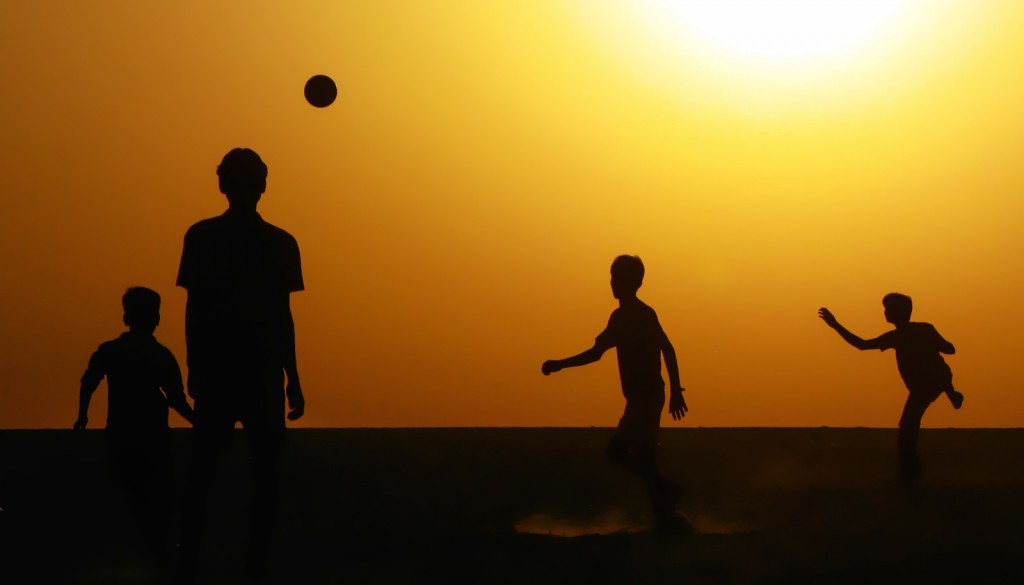
Children play with in the rising sun. Photo: R.M. Nunes
Parents who are too involved in their children’s lives may be limiting the physical activity of the children and causing them harm, a recently published study reports. Starting with the premise that physical activity is a necessity and important to the health and emotional well-being of a child, the researchers looked at the effects on physical activity of four modern parenting styles: helicopter, little emperor, tiger mom and concerted cultivation. These styles are together referred to as hyper-parenting.
Helicopter parents try to protect their children from any danger and to solve all the problems that the child may face. Little emperor parents try to meet all the material desires of their children. Tiger-mom style parenting consists of setting high achievement expectations for their children and pushing them hard to get exceptional results. Concerted cultivation means putting children in many extra-curricular activities in order to give them an advantage.
The researchers found that children got less physical activity per week if their parents applied even average levels of hyper-parenting styles, compared to children whose parents displayed low levels of hyper-parenting. Physical activity was defined not just as outdoor play, but also walking or bicycling to school, other people’s houses or shops, and organized sports.
The amount of physical activity seems not to have been affected by the level of helicopter parenting, which the authors could not explain. An unexpected finding was that the amount of time spent on organized sports went down as the level of concerted cultivation parenting increased. However, children with tiger-mom type parents who pushed for athletic excellence spent more time on organized sports than other children with other types of hyper-parents.
The lack of a connection between helicopter parenting and the amount of physical activity may mean that the researchers were looking for a connection where there is none. It is also not hard to believe that if parents involve the children in several hours of non-physical activities such as tutoring, music or art, then they may not have time for physical activity.
Since the goal of hyper-parenting is to try to ensure that children succeed in life, the finding that it is harmful in some ways may appear unexpected. However, the researchers were looking for such a result, explaining that, “children exposed to excessive hyper-parenting may have limited time for physical activity due to their homework and extracurricular activity commitments.” Another characteristic of hyper-parenting, being over-protective of children, may also lead to limiting how much time children spend outdoors and going around on their own.
The study was conducted on parents of 7-12 year olds, living in the US or Canada, and who had signed up to take part in Internet surveys, so the results may not be generally applicable. Several other aspects of the study and questions that were asked would not apply to India. For example, bad driving habits and poor road design mean that only economic necessity or lack of other transportation would lead children to bicycle to school in India.
On the other hand, Indian parents do worry a lot about their children getting into college, and after-school lessons and classes are increasing. The message parents ought to take away from this study is that as they do everything to make sure their children will succeed, they should also see to it that their children get the time and do spend it on outdoor play, going around on foot or by bicycle as much as possible, and perhaps play an organized sport.
Did you find this article helpful? Please leave a comment and like FamiLife’s page on Facebook so that others can also find us.
